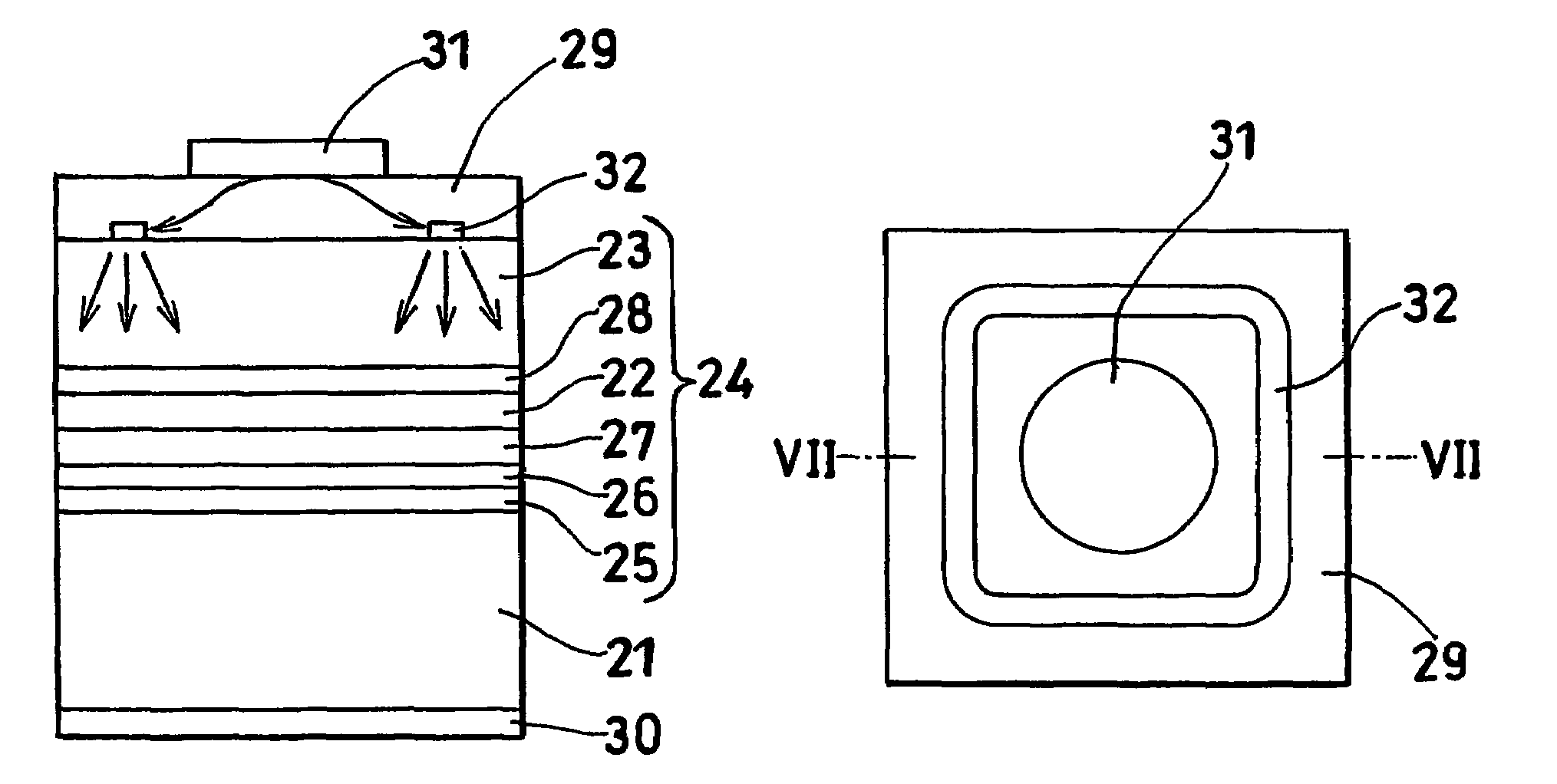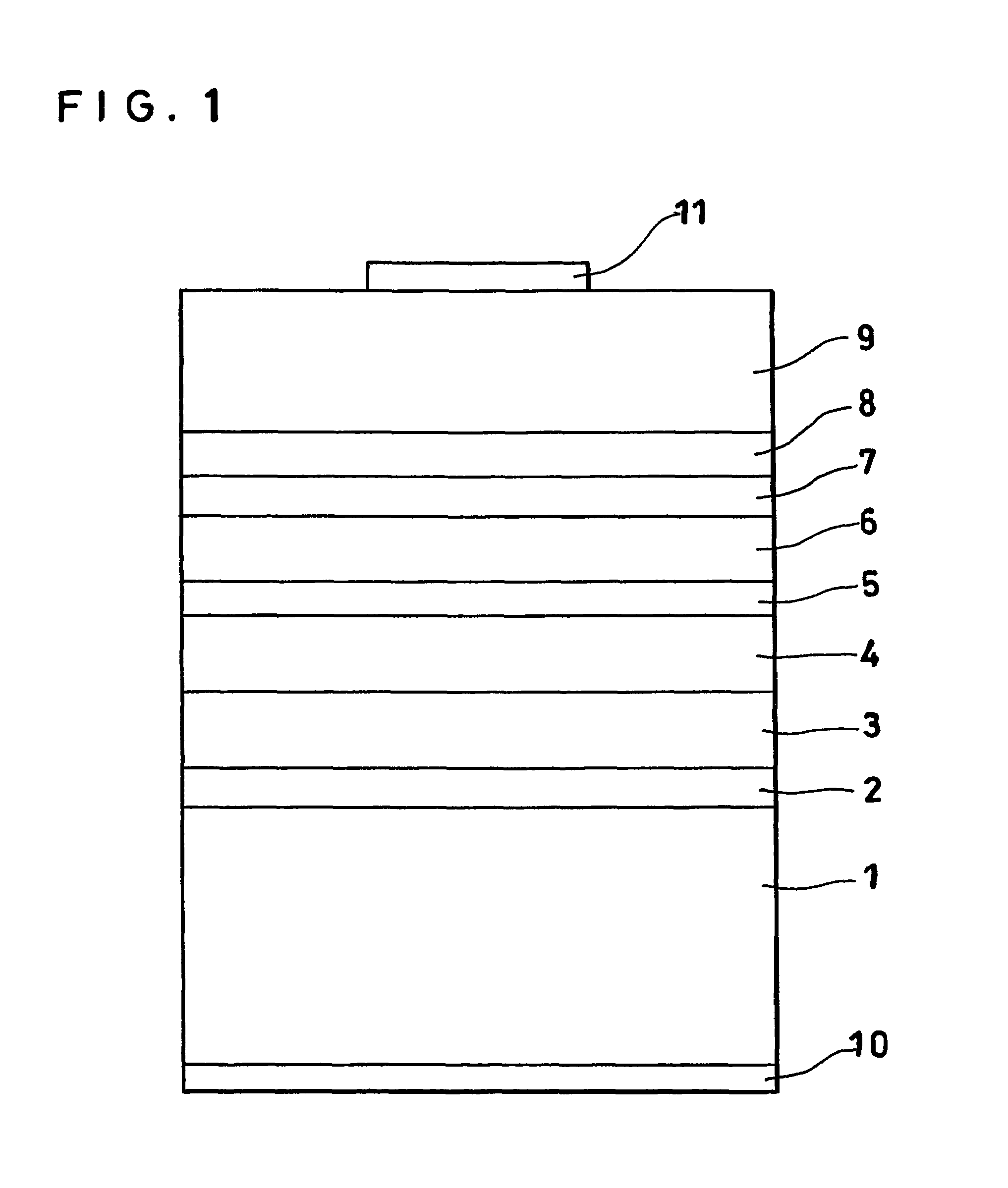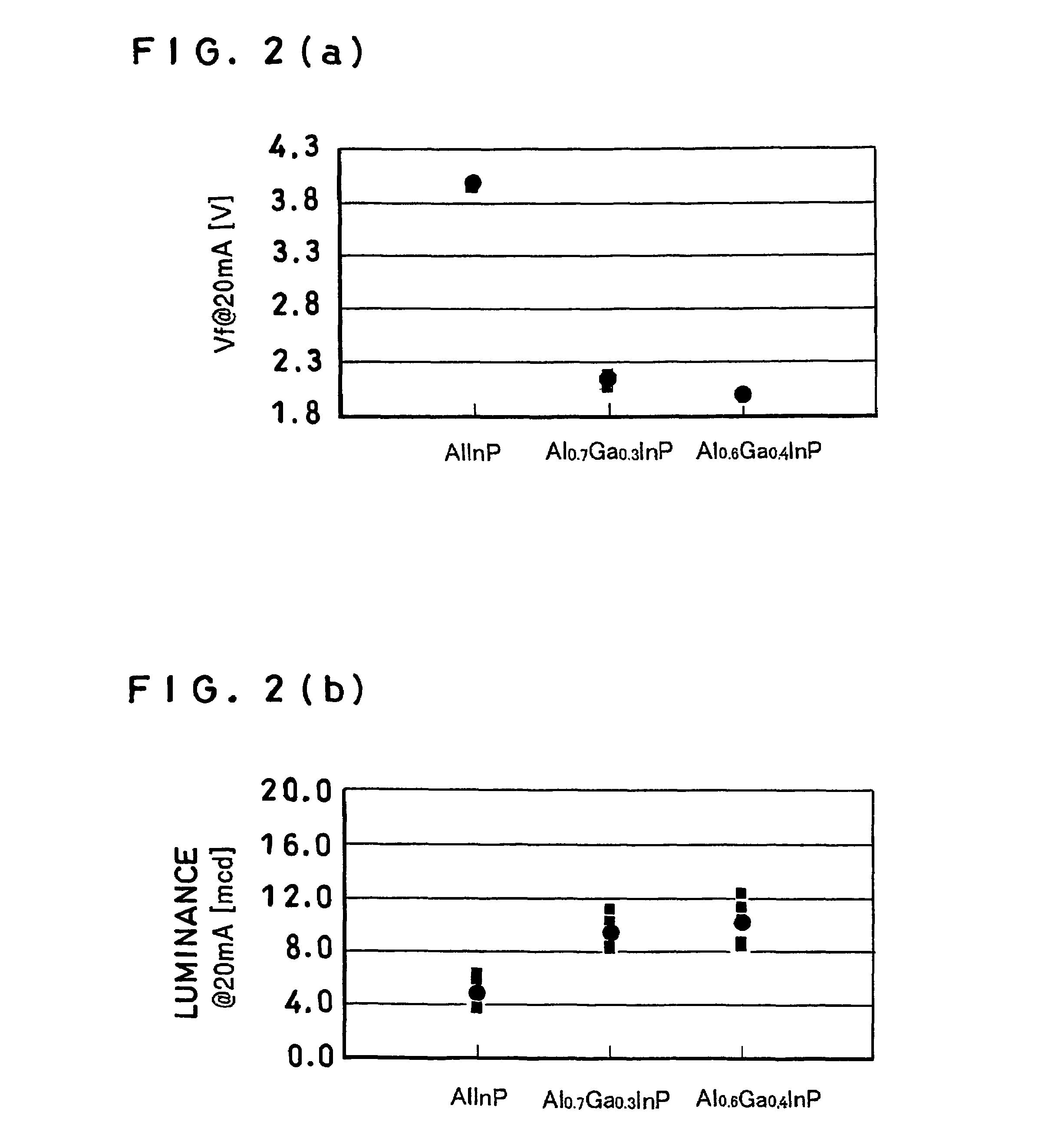Light-emitting diode device and production method thereof
a technology of light-emitting diodes and production methods, which is applied in the direction of semiconductor devices, basic electric elements, electrical appliances, etc., can solve the problems of poor electron confinement, lowering the emission light output, and reducing the efficiency of hole injection, so as to enhance the crystallinity of a window layer and enhance the precision
- Summary
- Abstract
- Description
- Claims
- Application Information
AI Technical Summary
Benefits of technology
Problems solved by technology
Method used
Image
Examples
Embodiment Construction
[0067]FIG. 1 is a schematic cross section showing one embodiment of a double hetero structure light-emitting diode (LED) device having an AlGaInP active layer according to the present invention. In this embodiment, on a substrate 1 there are formed a buffer layer 2, a reflection layer 3, an n-type cladding layer 4, a first undoped AlInP layer 5, an active layer 6, a second undoped AlInP layer 7, a p-type intermediate layer 8 and a window layer 9 in this order, with an n-electrode 10 provided on the backside of the substrate 1 and with a p-electrode 11 provided on the front surface of the window layer 9.
[0068]The substrate 1 used in this embodiment is a silicon (Si)-doped gallium arsenide (GaAs) substrate (15°-off relative to (100)). On the substrate, the layers listed in Table 1 below are formed by use of trimethylgallium (Ga (CH3)3), trimethylindium (In(CH3)3), trimethylaluminum (Al(CH3)3), dimethylzinc (Zn(CH3)2), disilane (Si2H6), arsine (AsH3) and phosphine (PH3). Notably, durin...
PUM
 Login to View More
Login to View More Abstract
Description
Claims
Application Information
 Login to View More
Login to View More - R&D
- Intellectual Property
- Life Sciences
- Materials
- Tech Scout
- Unparalleled Data Quality
- Higher Quality Content
- 60% Fewer Hallucinations
Browse by: Latest US Patents, China's latest patents, Technical Efficacy Thesaurus, Application Domain, Technology Topic, Popular Technical Reports.
© 2025 PatSnap. All rights reserved.Legal|Privacy policy|Modern Slavery Act Transparency Statement|Sitemap|About US| Contact US: help@patsnap.com



